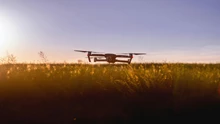
Pumpkin's tiny, edible seeds are filled with more nutrients than you may have imagined. Despite being so small, pumpkin seeds are a nutritious powerhouse that our systems depend on. As a result, pumpkin seeds have many health advantages, including helping people lose weight. Additionally, pumpkin seeds give nutritional value to our dishes while also giving them a distinct flavor and crunch.
There are many different flavors and packs of pumpkin seeds on the market. But not everyone is the same. Compared to seeds that are taken straight from pumpkins, market-sold seeds are different. You can get pumpkin seeds at the market that are already shell-less. But not all of these varieties of pumpkin seeds are equally nourishing.
While they work for the majority of individuals, not everyone can use them. Additionally, they have negative effects and don't interact well with all medicines. Before choosing to eat them, there are a few things to consider.
But for the majority of people, pumpkin seeds rank among the healthiest foods.
Top Pumpkin Seed Nutrition Facts
1. Pumpkin Seeds Improve mood, sleep, and stress
Magnesium, often known as our "chill-out mineral" due to its critical function in controlling our stress response system, is abundant in pumpkin seeds. Magnesium helps promote relaxation and deep restorative sleep by maintaining healthy levels of GABA, a neurotransmitter that calms the body and mind. Tryptophan, an amino acid that promotes sleep, is another component of pumpkin seeds. According to nutritionists, high-tryptophan foods (like pumpkin seeds) are thought to help treat depression, though more research is required.
2. They include antioxidants and micronutrients
Pumpkin seeds include more nutrients than only magnesium. Potassium, manganese, iron, zinc, and copper are all good micronutrient sources in pumpkin seeds, which can provide 14 to 42% of the daily recommended amount for each. Thanks to manganese and vitamin E, these essential vitamins and nutrients support bone and skin health while iron and copper help in the creation of energy. While potassium promotes cardiovascular health, zinc helps with immunity and eye health. And if that weren't enough, antioxidants included in the powerful seeds shield cells from free radical damage. Pumpkin seeds were even recommended by the World Health Organization (WHO) as the best food to consume for obtaining zinc and magnesium.
3. Pumpkin Seeds Are a Fantastic Fiber Source
One ounce of pumpkin seeds contains about 2 grams of fiber, which is very important for promoting movement throughout our bodies. Pumpkin seeds contain dietary lignans, which help lower the risk of breast cancer and the spread of prostate cancer, along with plant-based fiber. It is advised to eat shelled varieties if eating high-fiber foods upsets your stomach.
4. They Have Heart-Healthy Fats
Alpha-linolenic acid (ALA), an unsaturated omega-3 fatty acid derived from plants that may lower the risk of heart disease, is present in large quantities in pumpkin seeds. According to research, the fiber in seeds may also help reduce blood pressure, inflammation, and cholesterol levels, all of which are linked to heart health.
5. They Have a History of Aiding Male Fertility
Pumpkin seeds are a wonderful source of zinc, as we already discussed, but this mineral has benefits beyond only immune support. In particular, for men's hormones and sperm health, zinc is crucial for hormone health. Low levels of zinc are linked to poorer sperm quality and a higher risk of male infertility. Men can take measures to safeguard and enhance their fertility by consuming healthy sources of zinc every day.
6. By consuming pumpkin seeds, you can get rid of parasites
You might not have given parasites much thought, but Brown has observed a recent rise in the prevalence of parasites, so it's important to note the potential impact that pumpkin seeds may have in this situation. Pumpkin seeds contain a substance called cucurbitacin, which aids in the elimination of roundworms and tapeworms. Eating raw pumpkin seeds can help flush out parasites, but if you have a parasite you should see a doctor to confirm it.
How to Eat Pumpkin Seeds in the Best Way
A serving size for pumpkin seeds is 1 ounce, or slightly less than a quarter cup. Aim to eat that much three to four times per week to get many of the advantages mentioned above. But pay attention to your body: reduce your portion size if you begin to experience stomach discomfort.
Do you want to start incorporating more of these small miracles into your diet? Dietitians advise baking pumpkin seeds into muffins or crackers or toasting them in a dry (no oil) saute pan and add them to salads or soups for a crunchier flavor. Or adding pumpkin seeds to a warm bowl of oatmeal or substituting them for the pine nuts in pesto. In addition, one can always add raw or roasted pumpkin seeds to a trail mix of dried fruit, nuts, and other seeds. This trail mix has a taste and texture similar to sunflower seed butter.











